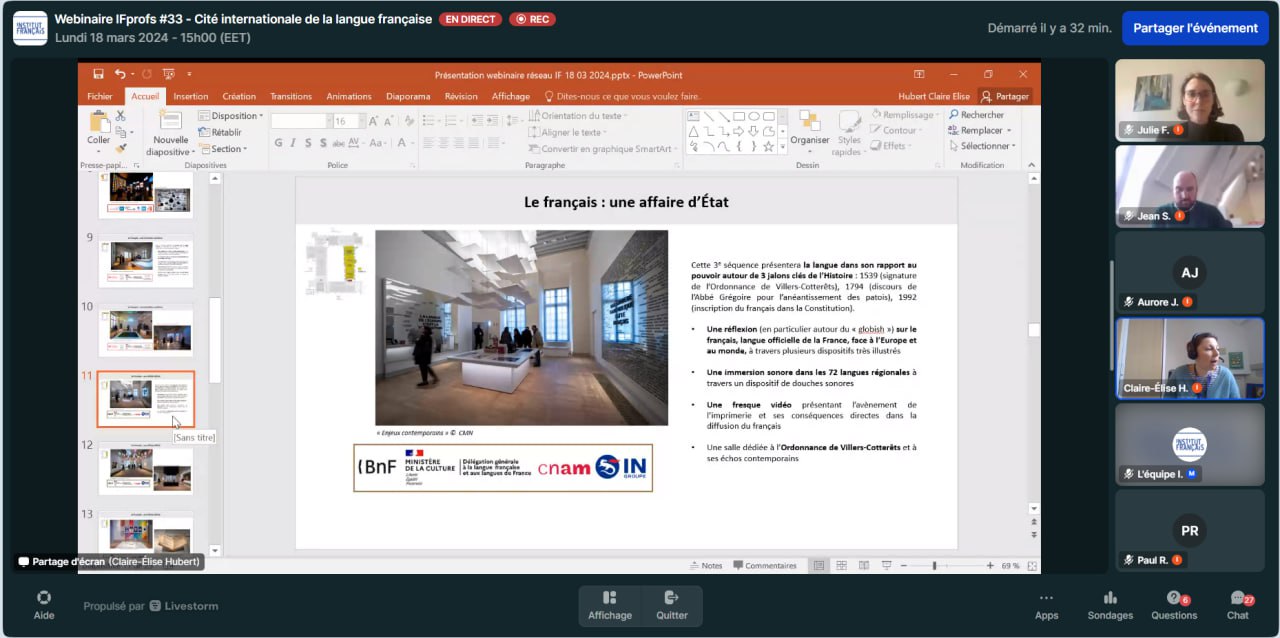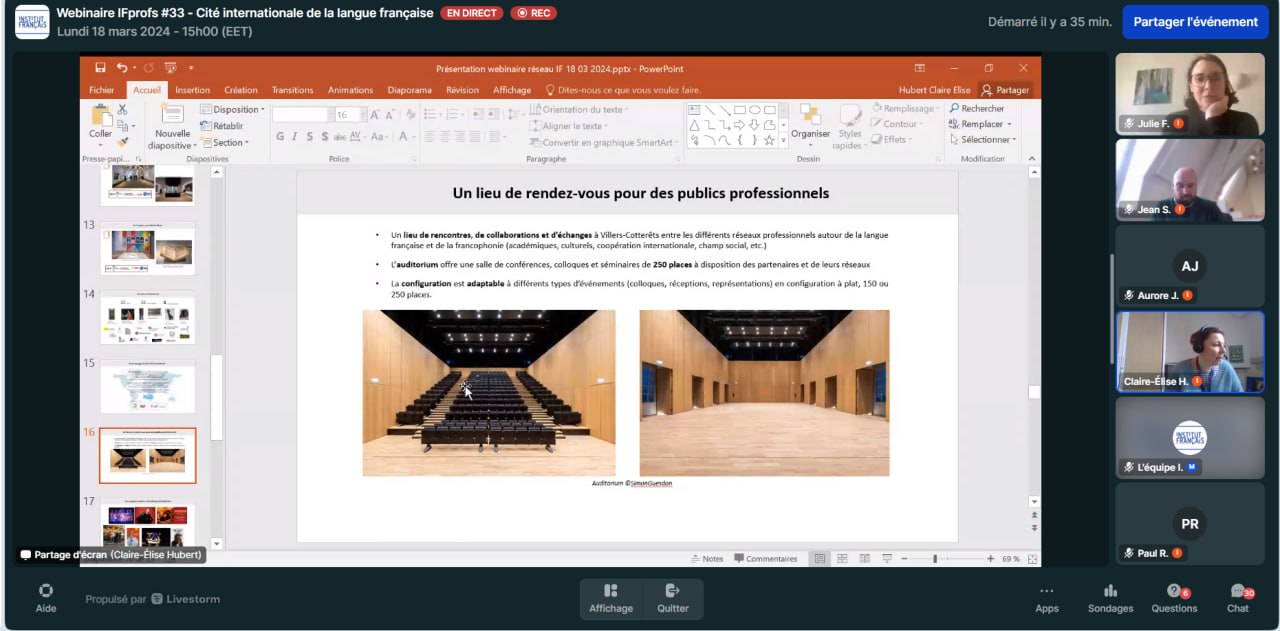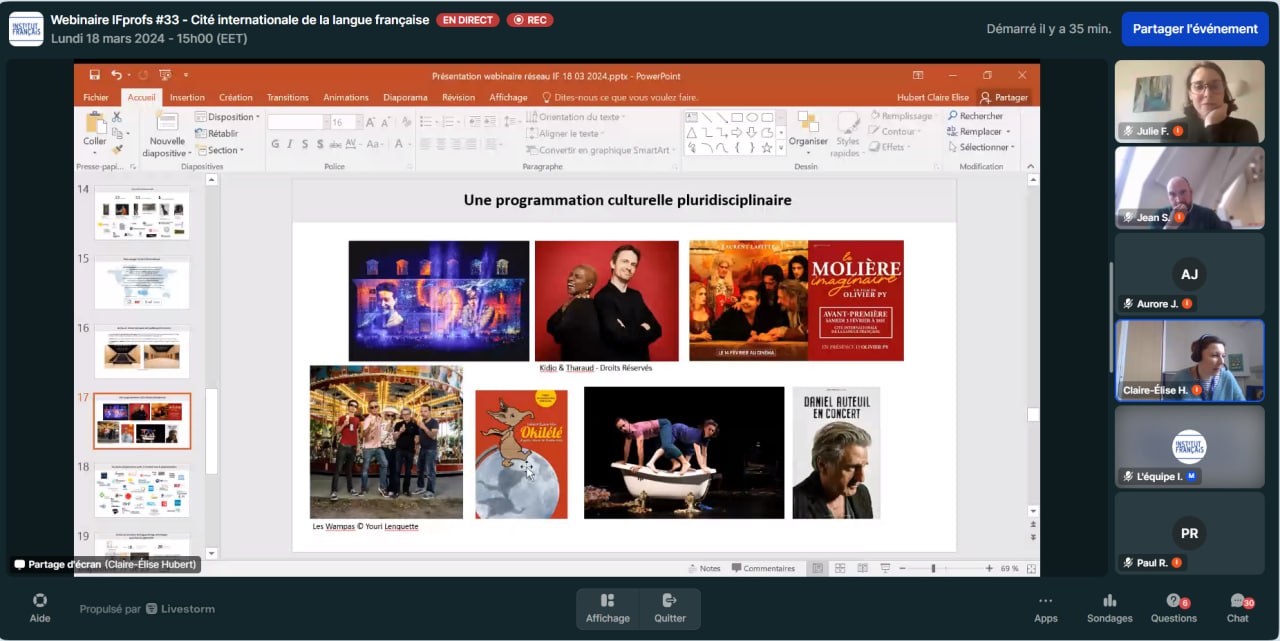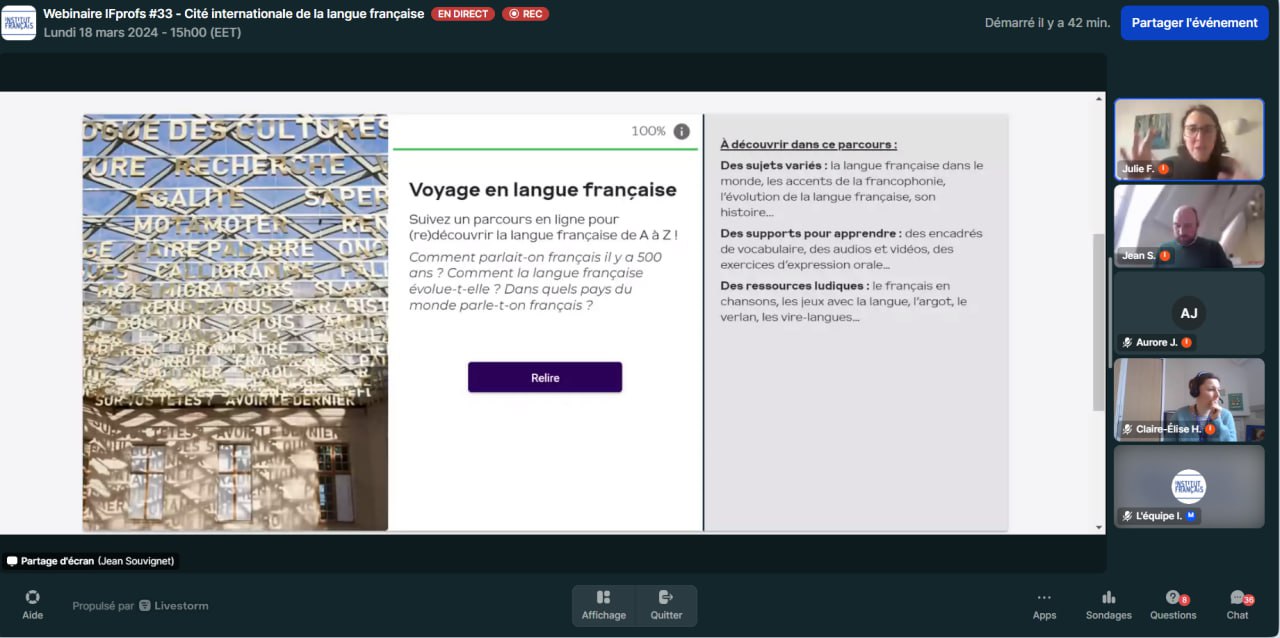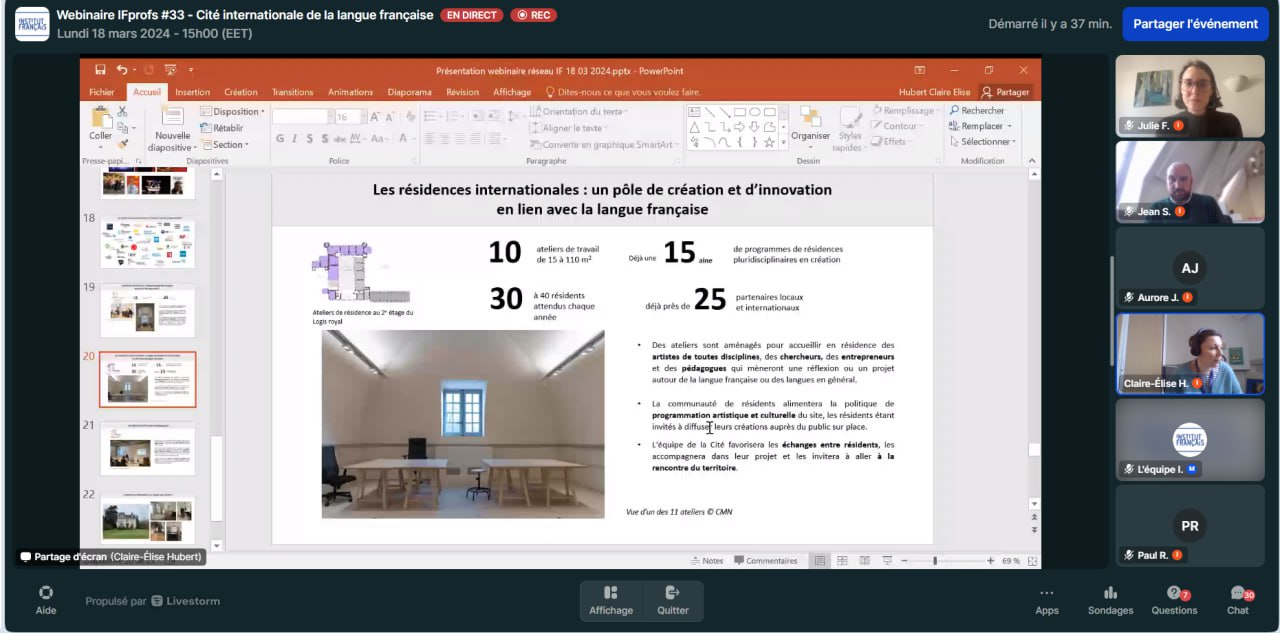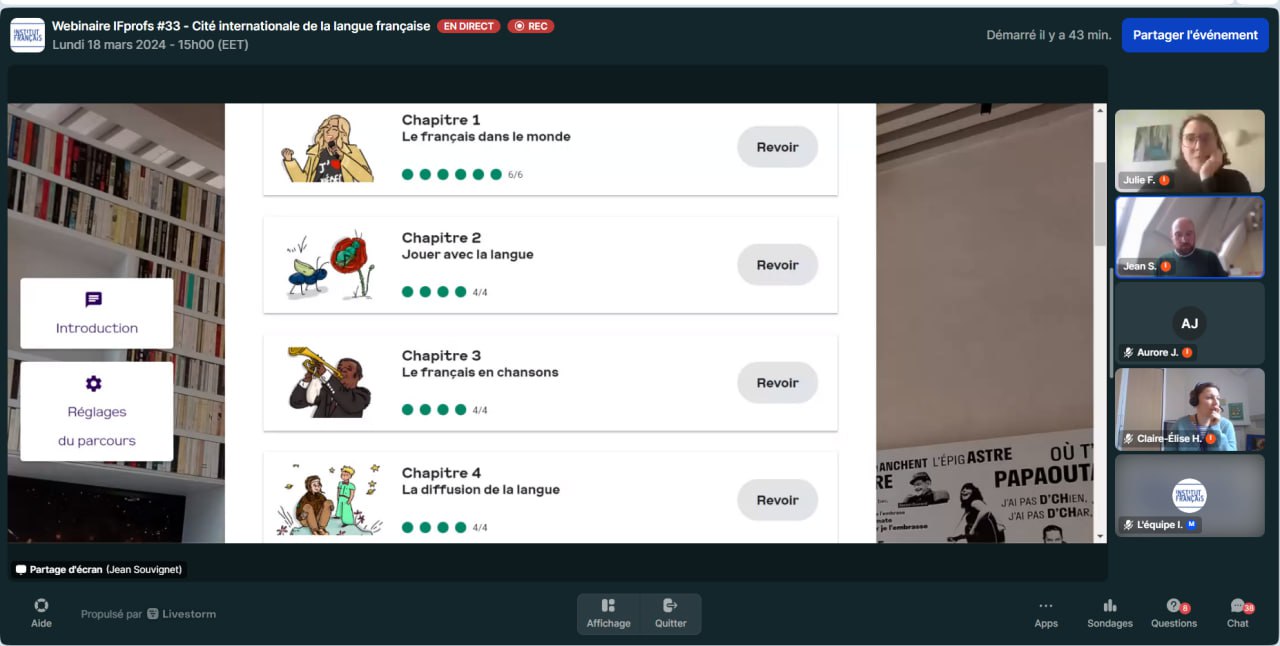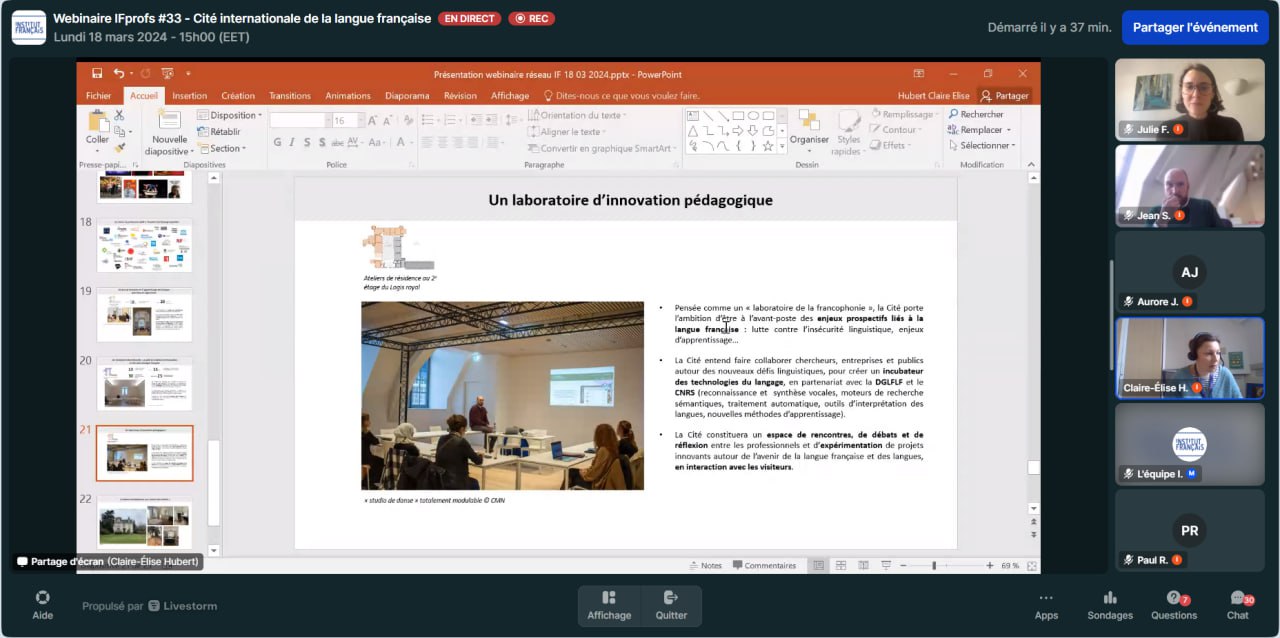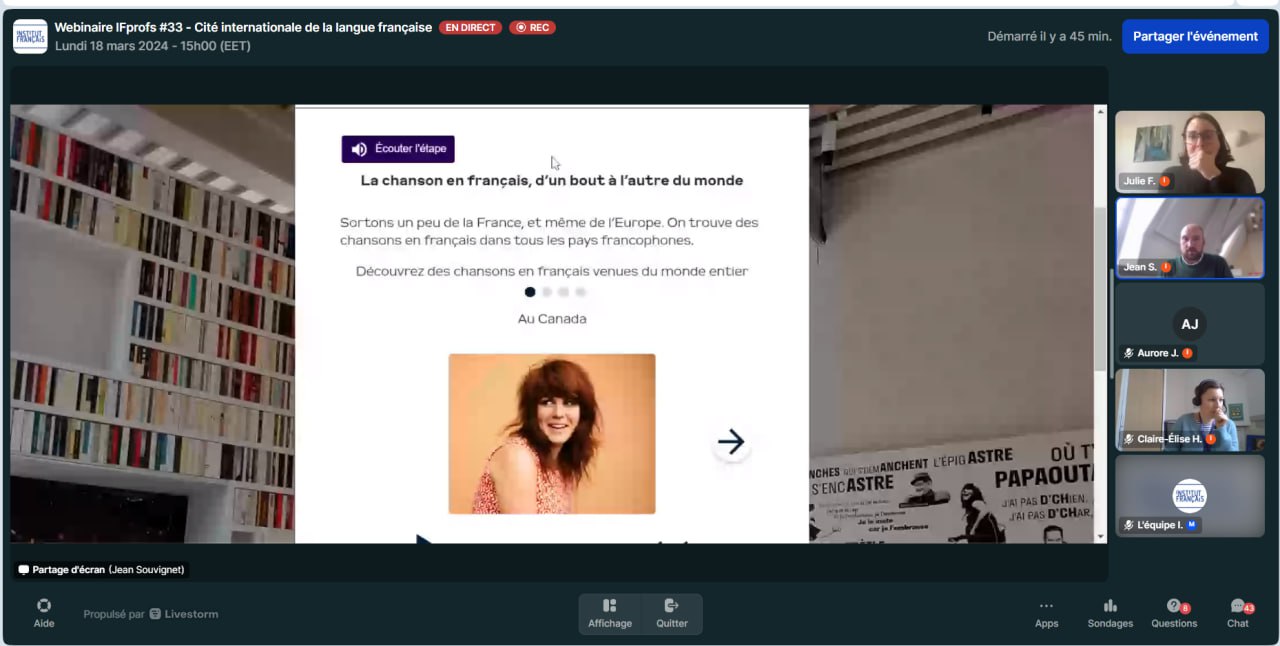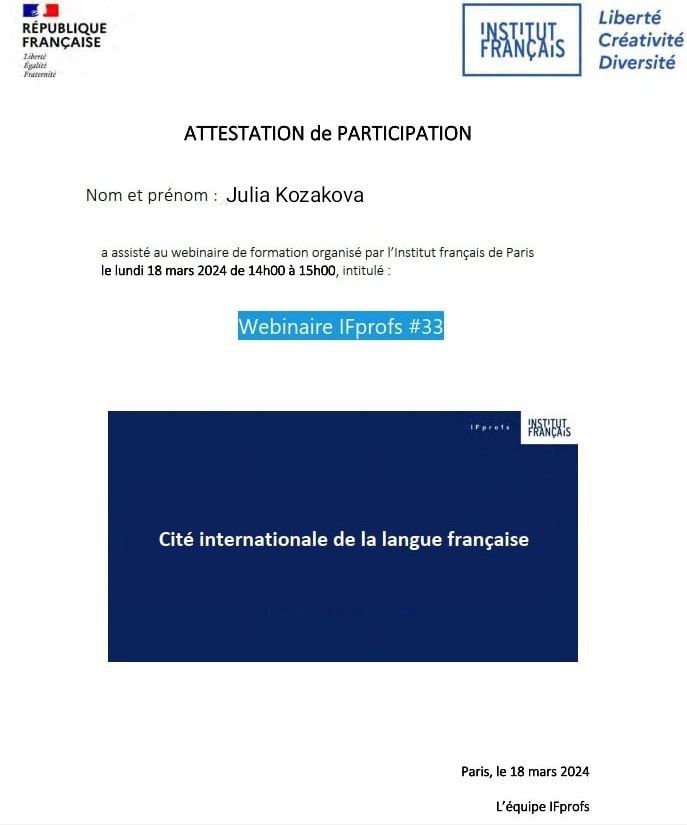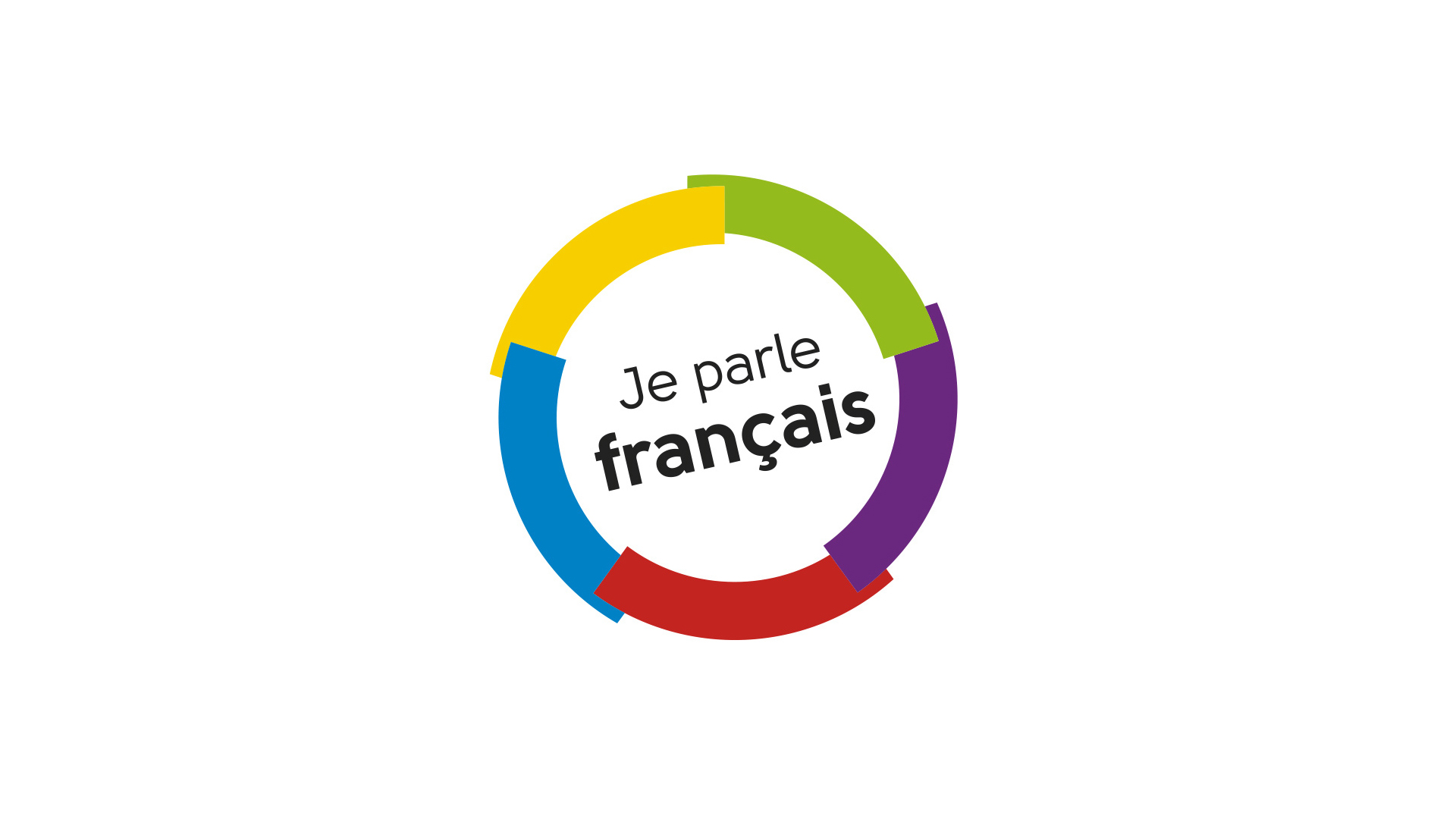Every year on March 20, the world celebrates the International Day of the French Language and Francophonie. French Language Day was established by the United Nations in 2010, and March 20 was chosen in honor of the fortieth anniversary of the founding of the international organization Francophonie in 1970. This is a holiday of francophones, because French is the fifth language in the world, one of the official languages of the UN, the Council of Europe and other international organizations, the official language of 33 countries, more than 300 million speakers, the fourth language among Internet users, more than 100 million learn French or study in French. This year, the International Day of the French Language will be held under the slogan "Créer, innover, entreprendre en français!"
On March 18, the teachers of the Department of French and Spanish together with the graduates of the first (bachelor) level of higher education of the educational program "Language and Literature (French/English)", "Language and Literature (English and a second Western European language)" of the Faculty of Romano-Germanic Languages, " Philology (translation (English; German or French))" of the Faculty of Social and Linguistic Communication took part in the webinar "Cité international de la langue française", which was organized by the Institut français de Paris. The purpose of creating the Cité international de la langue française - a cultural center - is to popularize the French language in France and the world. Applicants of the GIIIM who study the French language had the opportunity to familiarize themselves with the work of the cultural center, which offers free of charge interesting and useful locations, didactic materials and platforms for learning and improving the French language. The cultural center offers four thematic routes, thanks to which you can learn about the history of the castle and the thematic directions that make up the route dedicated to the French language: "Un château, un territoire" invites you to immerse yourself in the history and architecture of the castle of Villers-Côtre; "Une langue en mouvement" allows you to practically use a language that is constantly changing, to express emotions depending on your location in the French-speaking space; "Langue et citoyenneté" explores the relationship between language(s) and power, language(s) and identity, as well as the place of regional languages or the different language policies carried out to support French in the Francophone space (soon to be available); "La langue de Molière" makes you think about the reasons why the French language was named as it is and consider the modernity of the themes raised in Molière's theater (coming soon).
